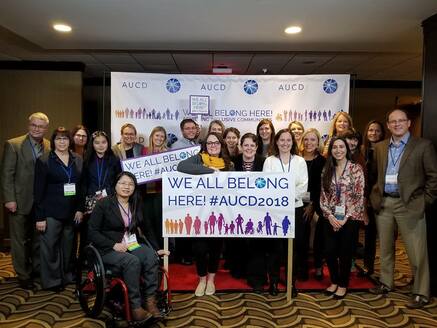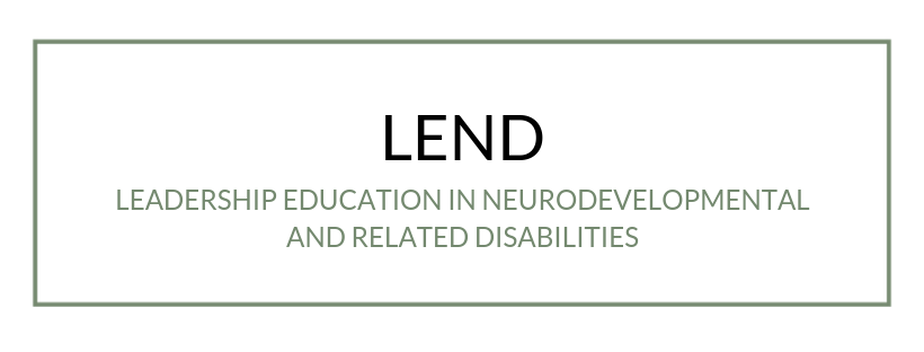 My colleagues at the annual AUCD conference in Washington D.C. My colleagues at the annual AUCD conference in Washington D.C. Last year, I applied for something called the LEND program. LEND stands for Leadership Education in Neurodevelopmental and related Disabilities, which is a mouthful so let’s just stick to LEND. When I applied, I really had no idea what I was getting myself into. I applied because I thought it was a pediatric program that worked with children primarily on the Autism Spectrum and with children who have other conditions, like Cerebral Palsy and Down Syndrome. Throughout my previous clinical experience I had worked with several children with developmental delays so I thought it would help me better serve that population when I got a job in clinical nutrition. I’m not someone who is especially worried about the unknown so this information was enough at the time. Today, I want to share what I have learned through the LEND program so far and why I think you should consider the LEND program too. What I now know is that the LEND program is Leadership Education in Neurodevelopmental and related Disabilities, to prepare trainees to advocate for improved opportunities and care in clinical and community settings for those with complex health, learning and behavioral needs in an interprofessional setting. There are five components to the LEND program: education on integrated interdisciplinary care for individuals with complex health needs, advocacy that supports those with complex needs to ensure they can reach their life goals, research to help support future care and community services, clinical experience where I have had the amazing opportunity to work with a pediatric cystic fibrosis population, and leadership to pave the way for an inclusive and supportive future. I could have never imagined what I would gain from the LEND program. However, I think I value my new perspective the most. I’ve always worked clinically in an interprofessional setting, but I’ve also never worked this closely with some of the other healthcare professions. My class is made up of Occupational Therapists, Speech Language Pathologists, Physical Therapists, Social Workers, a variety of psychologists, parent advocates, and self advocates. Together we unpack issues that go outside of the standard clinical thinking, focusing on how there is a system at play that interacts with other systems working through a multi-system model. Many practitioners ask what the parents need from them and give them a few items to work on between visits. But what I don’t here practitioners asking is what is the most important aspect of your child’s care to you, and sometimes this may not be your discipline. When a parent has 13 different providers asking them to work on 2-3 tasks each, it’s just too much. Plus, people have lives outside of their child’s health issues and you may have no idea. This new insight has really shaped the way I counsel patients and build rapport because I’ve been able to get to know parents and self-advocates who have graciously shared their perspectives with me. What I have come to realize is that patient-centered care doesn’t just mean I meet the patients where they are nutritionally, but in the grand scheme of their life, nutrition might not be the most important battle they are fighting. Sometimes a patient needs to know that you can help them with what they can handle, which could mean you’re making your nutrition goals relate to their other goals or referring them to someone who can meet their needs, reassuring them that you’ll be there when they are ready. There is so much more to the program/traineeship that I will share as I progress through the next semester. However, if you have the opportunity to get involved in a LEND program (they’re all over), I would highly recommend it. LEND is truly unique and you can tailor your experience to your interest and the impact you want to make. Although you are only required to devote a set number of hours to the program, I suggest allowing extra time because the opportunities are inspiring, and I continually want to dedicate more time than I have. LEND has been one of the most influential aspects of my education and has made me a better provider and community member.
0 Comments
Leave a Reply. |
